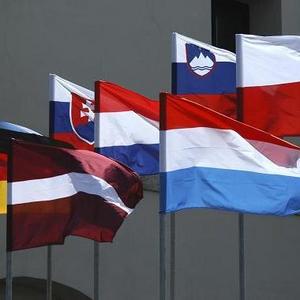EU imposes definitive duties on Argentine, Indonesian biodiesel

November 21, 2013
BY The European Commission
As of Nov. 27, the EU will impose definitive antidumping duties on imports of biodiesel from Argentina and Indonesia. The antidumping measures consist of an additional duty of on average 24.6 percent for Argentina and 18.9 percent for Indonesia. The measures are based on a decision taken this week by the council, following a 15-month investigation carried out by the European Commission. It revealed that Argentinean and Indonesian biodiesel producers were dumping their products on the EU market. The dumped exports had a significant negative effect on the financial and operational performance of European producers.
“The EU is open to Argentinean and Indonesian exports but we should not stay idle and tolerate structural raw material distortions,” said EU Trade Spokesman John Clancy. “We're glad the council adopted the commission proposal which is based on an objective investigation in line with WTO law. Now we can be reassured that our green energy sector is not under threat and will continue developing to the benefit of all Europeans.”
Advertisement
The commission took great care to ensure transparency of the process that culminated in this week's council’s decision. All interested organizations, including raw material providers, producers, importers and users, had an opportunity to express their views during the investigation to ensure that the overall benefits of such measures go beyond any potential inconvenience. Following the so-called “lesser duty” rule, the duty rates to be imposed will be lower than the dumping margin itself and will instead be pitched at a level calculated sufficient to offset the injury suffered by the industry.
The definitive antidumping measures will apply for five years and, in addition to restoring fair competition, are expected to ensure the continued development of an innovative green energy sector in the EU.
Advertisement
Background
According to the investigation's findings, Argentinean and Indonesian companies benefit from an unfair advantage because they have access to raw materials at prices that are artificially low compared to the world market prices available for the EU biodiesel producers. The reason for this are high export taxes imposed by Argentina and Indonesia on raw materials used in the biodiesel production (soya beans and soybean oil in Argentina and palm oil in Indonesia). The investigation found that the dumping margin for Argentina was between 41.9 percent and 49.2 percent and for Indonesia between 8.8 percent and 23.3 percent.
However, applying the EU “lesser duty rule,” the antidumping duties will for most exporting producers be imposed at the level of the injury margin which is for Argentina between 22 percent and 25.7 percent and for Indonesia between 8.8 percent and 20.5 percent. In other words, the duties were fixed not to constitute a punishment, but strictly to prevent further injury to the EU industry.
Related Stories
Iowa farmers have a new market opportunity for their 2025 soybean crop. Landus is expanding its Clean Fuel Regulation initiative, made possible by recent policy changes expected to increase Canada's demand for liquid biofuel.
Klobuchar, Moran introduce bipartisan legislation to support biorefineries, renewable chemicals, and biomanufacturing
Sens. Amy Klobuchar, D-Minn., and Jerry Moran, R-Kan., on July 31 announced the introduction of the Ag BIO Act. The legislation aims to update the USDA’s loan guarantee program to better support biorefining projects.
U.S. Secretary of Agriculture Brooke L. Rollins on Aug. 1 announced the opening of a 30-day public comment period for stakeholders to provide feedback on the department’s reorganization plan, as outlined in the memorandum released July 24.
Sen. Chuck Grassley, R-Iowa, on July 31 pressed Derek Theurer, President Donald Trump’s nominee to serve as under secretary of the U.S. Department of Treasury, on the expected timeline for the release of 45Z guidance.
The European Commission on July 28 approved a €36 million ($41.07 million) Danish state aid scheme designed to encourage airlines operating in Denmark to use sustainable aviation fuel (SAF) on domestic routes.
Upcoming Events










